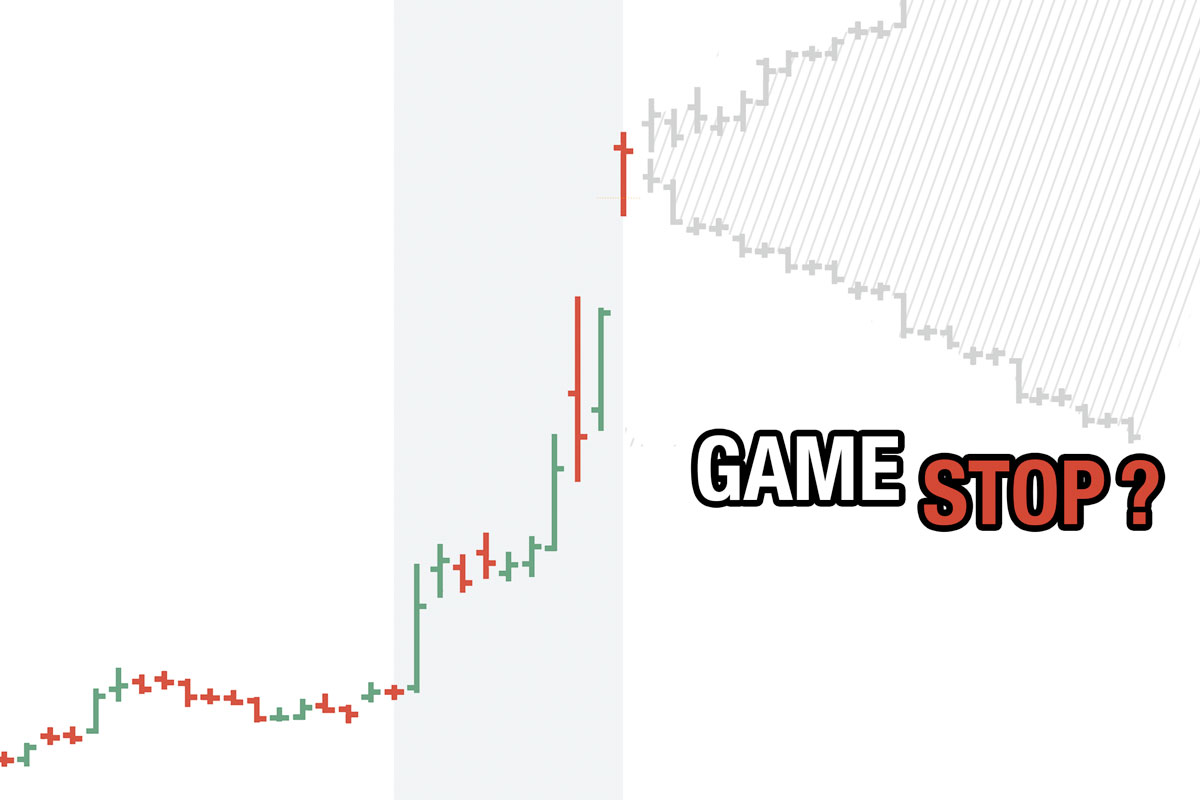
When it comes to your portfolio, we are focused on the long-term. We hold each security in the portfolio with the intent of holding it at least one year for preferential tax treatment. With this in mind, we normally wouldn’t share short-term market news, but when a stock rises 1800% in two weeks, there’s a story to tell.
GameStop (ticker: GME) is a video game retailer whose stock was around $60/share circa late 2007, but was trading around $20/share as recently as January 12. The company has fallen on tough times in recent years, so professional hedge fund traders sold the company’s shares short, betting the stock price would continue falling. To sell short means you borrow the stock and sell it in the hopes of buying it back and returning the shares at lower prices.
Now, this is where the plot thickens: A large group of traders using an online forum called “WallStreetBets” banded together to buy GME stock in the hopes of squeezing the hedge funds out of their short position. The goal of the short squeeze is to force the short seller to buy back their shares, which would push the shares even higher. If the short position is big enough relative to the number of outstanding shares, then this can result in large stock price moves. As the price of the stock rises, so does the size of the loan for any hedge fund betting against it. Eventually, the hedge funds would either receive a margin call requiring them to add more collateral to their account or take a huge loss and buy back the stock at higher prices.
The plan worked. The stock price doubled on January 13. Melvin Capital Management—a $12.5 billion hedge fund that was shorting GME—quickly raised $2.75 billion in more capital from two other hedge funds to fund their GME-related losses. This news only further emboldened bullish traders: 10 days later, the stock hit $380/share and it continues growing even higher! During the process, Melvin and many other hedge funds had to close their short positions at prices the stock had never seen before, incurring huge losses. To cover their losses, they had to sell other holdings, contributing to the overall market falling yesterday.
There are two lessons to share from this episode:
- It is better to lose your opinion before you lose your money. Said another way, it is okay to make a mistake and be wrong, but it is not okay to stay wrong. Managing risk is key to long-term wealth creation.
- In the short term, investments are worth what the market participants say they are worth. That being said, these assessments don’t always make sense because people don’t always act logically with their portfolios.
While this is an interesting episode to watch unfold, we will help you remain focused on achieving your long-term goals by avoiding unnecessary taxes, eliminating redundant fees, and earning a decent portfolio return with a focus on risk management.
STAY IN THE LOOP

